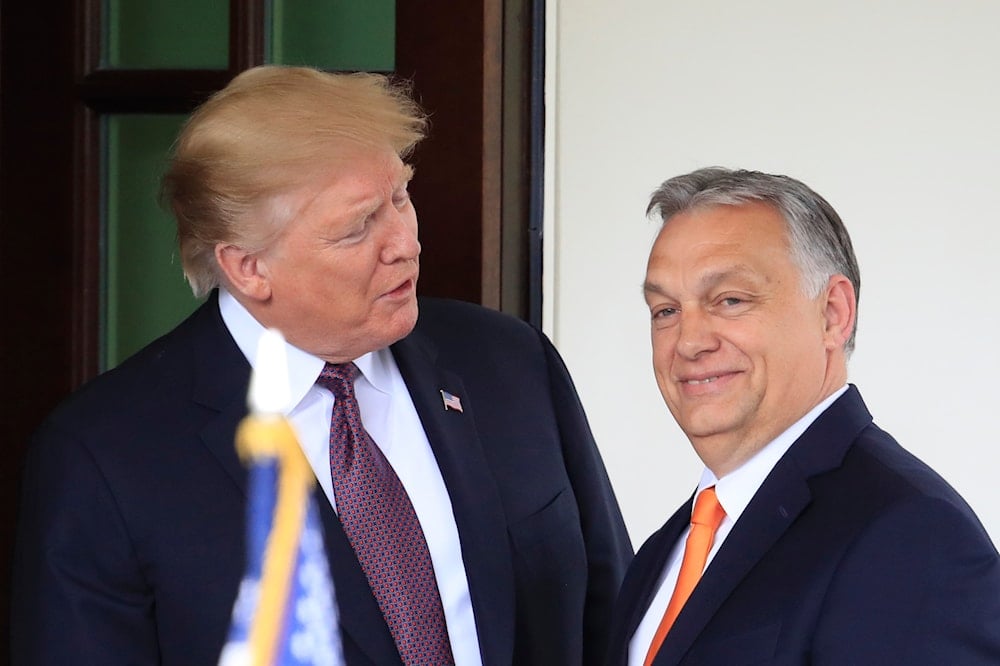Hungary rejects US pressure to reduce Chinese economic ties: Bloomberg
Hungary rejects US calls to cut China ties, citing major Chinese investments in electric vehicles and telecoms.
-

US President Donald Trump welcomes Hungarian Prime Minister Viktor Orban to the White House in Washington on May 13, 2019. (AP)
Hungary will not reduce its economic ties with China, Economy Minister Marton Nagy confirmed, signaling that Prime Minister Viktor Orban’s government remains committed to Beijing despite growing pressure from the United States, Bloomberg reported on Monday.
Speaking to reporters in Budapest, Nagy stated that Hungary does not foresee any US investments that could replace current Chinese economic contributions. "We don’t see an investment potential from the US that would be on par with China," he said, "We have a very pragmatic position."
The report highlighted the lack of a new tax treaty between Hungary and the US, severed by the Biden administration, as a key obstacle. Nagy argued that without such an agreement, US investments in Hungary remain limited.
The US pressure on Hungary has intensified, with Washington urging Budapest to scale back its reliance on China. US President Donald Trump’s administration raised concerns over China's growing influence, particularly in Hungary’s electric vehicle industry and telecommunications.
According to Bloomberg, Hungary has emerged as a strategic partner for China in Europe. Major Chinese firms, including Contemporary Amperex Technology Co. (CATL) and BYD Co., invested heavily in Hungary’s electric vehicle sector. Additionally, Hungary is strengthening ties with Huawei Technologies Co., collaborating with 4iG Nyrt. to develop a joint cloud services platform.
These developments highlight China's critical role in Hungary's economic strategy, especially as Prime Minister Viktor Orban continues to open opportunities for the country to remain a hub for advanced manufacturing and technology in Europe.
Viktor Orban’s economic strategy
The report highlights Hungary’s focus on pragmatic economic growth, with Nagy stressing that without substantial US investment alternatives, Hungary will continue engaging with China to support its development goals.
The US has voiced its concerns through high-level figures, including Donald Trump Jr., who recently urged Hungary and other Eastern European nations to prioritize the US over China as their main economic partner. Similarly, US envoy Robert Palladino described China as a "strategic challenge" requiring vigilance from Western allies.
Similarly, Hungary did not cede to Western pressure in the past regarding sanctions on Russia. In one of the many statements, Hungarian Foreign Minister Peter Szijjarto stated last year that many companies within the EU continue to quietly conduct business with Russia, despite the sanctions imposed by the bloc, arguing that Hungary would continue business with Moscow.
Hungary has previously vetoed all EU sanctions packages against Russia, a stance that has increasingly isolated Budapest within the European Union. Hungarian leaders argue that sanctions harm European economies more than they impact Russia, and have positioned themselves as defenders of national economic interests over broader geopolitical pressures.

 3 Min Read
3 Min Read








